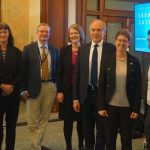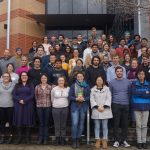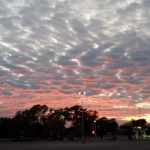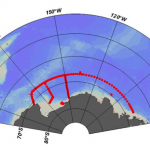
CMS report – August 2018
August 5, 2018 6:48 am Comments Off on CMS report – August 2018Our CMS team have decided to experiment with a new way to provide training to the Centre’s scientists.

Our CMS team have decided to experiment with a new way to provide training to the Centre’s scientists.

Melissa Hart looks at how funding will continue for ARCCSS students and how affiliations need to be considered. This year's Winter School was also quite a success. Aside from the science, there were some very useful tips in putting together a bio that can help advance the careers of our students.

Research has now begun in earnest in the Drought Research Program with all key staff finally in place. This has proved timely. At the time of writing (August 2018) most of NSW has been drought declared and forecasters suggesting little sign of drought-breaking rains over coming months.

The Extreme Rainfall Research Program has put personnel in place and is working on research into how extreme rainfall is represented in models.

The Climate Variability and Teleconnections Research Program has formed into three separate clusters – SAM, Tropical Variability and Oceans.

The Heatwaves and Cold Outbreaks Research Program is in full swing, welcoming a new associate investigator in Debbie Hudson from the Bureau of Meteorology and pressing ahead with research across a range of areas.

On Wednesday, June 27, we celebrated the achievements of the ARC Centre of Excellence for Climate Systems Science with a legacy event at Old Parliament House. The celebrations also included three masterclasses in various aspects of climate science.

Steefan Contractor attended the ARCCSS/CLEX winter school from June 25-29, 2018. The theme of the school was climate extremes. It involved lectures in the morning on various climate extremes (such as heatwaves and rainfall extremes) and also a group activity in the afternoons.

As the end of his masters degree approaches, Ewan Short is at a career crossroads. He studied meteorology, and his main choice is whether to pursue a career as an operational forecaster with the Bureau of Meteorology, or do a PhD. An internship with the Bureau of Meteorology was a step on the way to making that decision.

For 67 days from early March to mid May, Taimoor Sohail was aboard the US Antarctic Program icebreaker, the Nathaniel B. Palmer, on a scientific expedition from Hobart to Punta Arenas in Chile. It was relentless but very rewarding work, scientifically and personally.